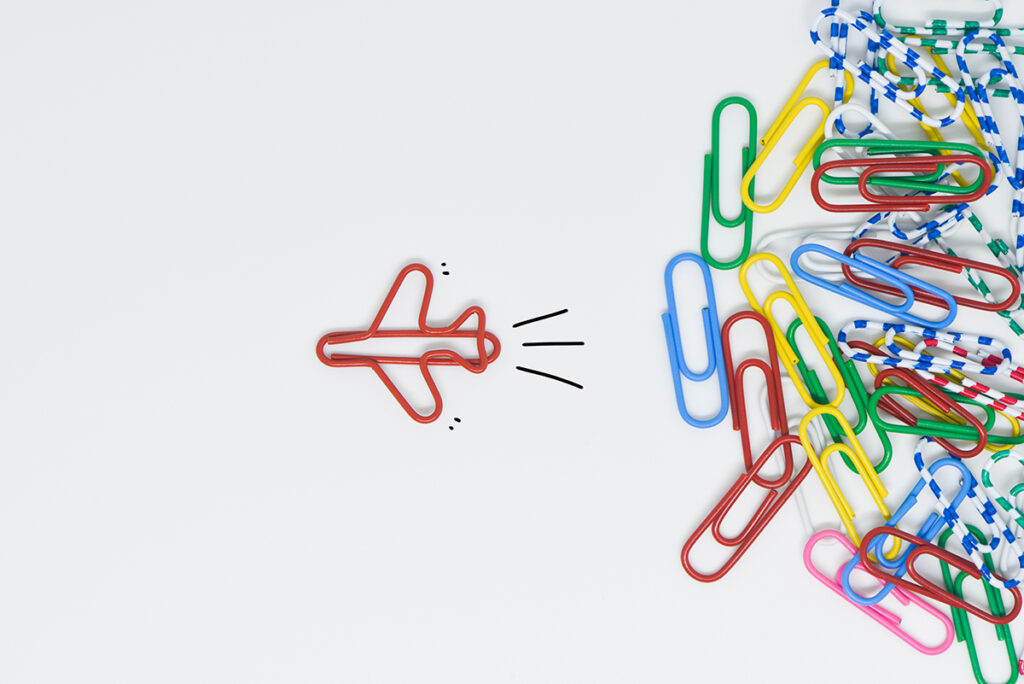“Life happens” is how a colleague recently summed up the multitude of challenges that we all face on a day-to-day basis. Including those that have the capacity to be fundamentally life-altering.
Those two words, often unhelpfully, can oversimplify the emotional toll and impact that the everyday challenges we all face have on us.
It led me to question if the well-intended health and wellbeing initiatives that so many organisations offer (and that I indeed develop!), really help when the challenges of life become overwhelming.
In my mind most of us are sitting in the grey, and ever so broad, area between “life happening” and mental illness… But are organisations really providing the appropriate spectrum of support we need to help us navigate that breadth?
Mind the gap
From the occupational help of employment assistant programmes (EAPs) and counselling services, through to free yoga, mental health first aiders, and yes, even our own virtual Wellbeing Workouts sessions, there is a long list of initiatives available to organisations looking to help develop the resilience and wellbeing of their people.
However, what about the more subtle, every day ‘check ins’? Those small but highly impactful moments that can be challenging to come by if you are, like many organisations, adopting a hybrid way of working.
I’m not talking about the courteous, transactional dance of “How are you?” usually answered with: ”Yeah, fine, and you?”
I’m talking about that colleague who knows you well enough to follow up with a second question or will give you such a quizzical look, that you feel yourself responding further. I call this “everyday empathy” and I wonder, is it happening?
The role of the manager
One would assume that managers are ideally placed to have developed the sorts of meaningful relationships I’ve described and, equally, recognise how important a role they are playing in asking those sorts of questions.
The often-used line of “my door is always open…” really doesn’t cut it.
Especially if that door requires yet another teams/zoom call.
For this to work, that manager needs to have worked proactively to generate the type of environment where disclosing and discussing ones life challenges is not just considered “something useful to flag”, but an essential part of the everyday.
I recognise that this is no simple feat, but if we assume that sort of environment has already been fostered, it is then the reactions that we give to any subsequent disclosure that is absolutely crucial.
It would be flippant of me to label a lot of these responses as ‘awkward’. Especially as I’ve experienced, overheard, or reacted myself in exactly some of these ways – although not necessarily out loud!
- “I don’t think this is a big deal…”
- “OMG – did they just say that, I haven’t got a clue what to do about this…”
- “I can’t relate to this at all…”
- “Oh great, how are we going to cover their work…”
- “Oh my, that reminds me of some very real, and painful memories…I can’t listen to this”
These different (and legitimate) responses will all impact that manager’s ability to be present and empathetic with someone who is now in a potentially vulnerable state. This is also the moment when a lot of managers who don’t feel equipped to deal with this will resort to those helpful resilience and wellbeing initiatives – offering a referral to occupational health which in this situation is more about relieving their responsibility, rather than helping the individual.
Closing the gap
A few myths about empathy that I attempt to dispel, is that “empathy is a trait” and “can’t be developed”. Or that empathy is “a soft, arm around” approach.
Empathy is anything but a soft skill, and it can very much be developed. I try to help individuals to understand the difference between sympathy and empathy and that using sentences like “At least…” or “I understand…” are actually counterintuitive to hearing and being with that person after they have disclosed something that they are struggling with.
Essentially, it is about empowering the managers to be confident and competent to hold a real conversation with a real person about real life.
It is my opinion that if the individual can manage their response and provide all the benefits of an empathetic approach, they are going to be more able to consider discretionary support which doesn’t require a referral to occupational health – e.g., taking the afternoon off.
There is a reason why the relationship with a line manager has been shown to be key to an employee’s wellbeing, but companies can often point to money invested to look after the workforce’s mental wellbeing with broad-reaching initiatives, but, surely, there is instead much simpler investment required. That of the ever so essential 1-1 human interaction.

